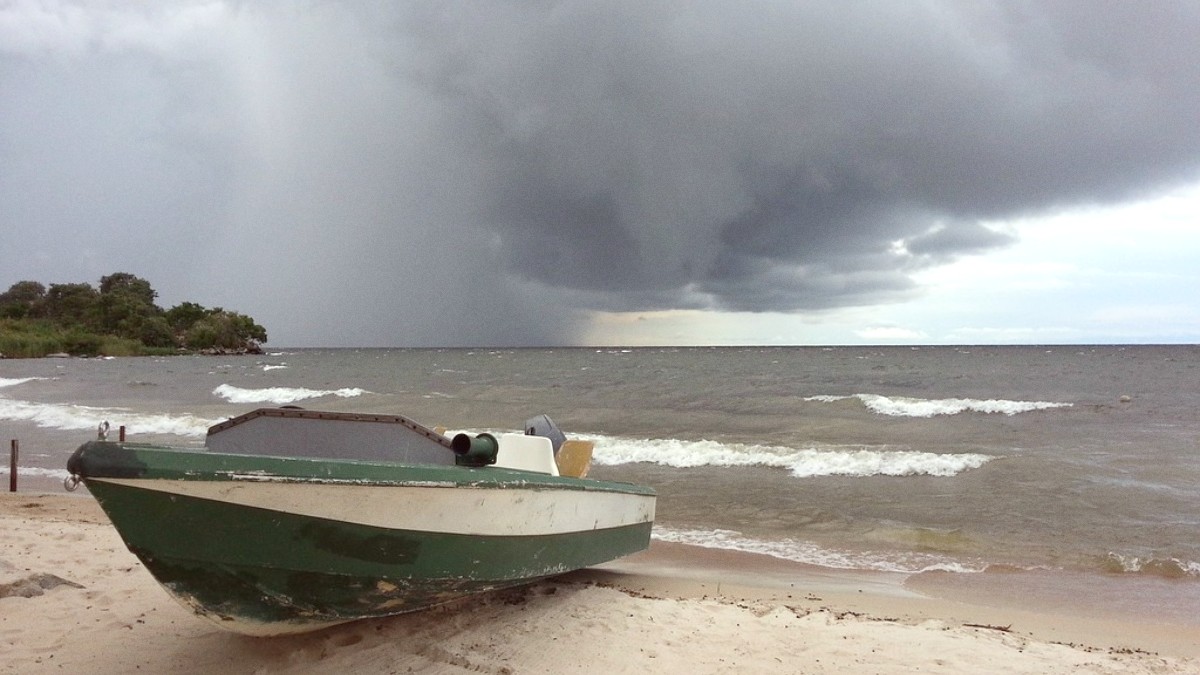
Mwanza Northern Tanzania, Tanzania Travel Guide
The region experiences two main rainy seasons. The short rains occur from October to December. These often involve brief, refreshing showers, typically in the late afternoon or evening, which rarely disrupt daily activities. The long rains arrive between March and May, bringing heavier and more sustained rainfall.
The dry season runs from June to September. This period features minimal rainfall, clear skies, and a noticeable decrease in humidity, a comfortable time for outdoor exploration. Humidity remains generally high throughout the year, especially during the rainy seasons. Prepare for this by wearing lightweight, breathable clothing.
Mwanza, located inland from the coast, does not experience monsoons or hurricanes. These severe weather phenomena are not a concern for visitors to the Lake Victoria region. The city also avoids extreme temperatures outside its typical tropical range.
A consideration during the long rainy season (March-May) involves heavy downpours. These can lead to localized flooding in low-lying areas, which might impact road travel within and around the city. Monitor local weather reports and road conditions if you plan to travel extensively during this period. Boats on Lake Victoria can also encounter rougher waters during heavy storms.
Dry Weather
Minimal rainfall, comfortable temperatures, good for lake trips & wildlife, clear skies.
Higher prices for accommodation & tours, more visitors, book in advance.
Short Rains
Fewer tourists, good birdwatching, potentially lower prices.
Intermittent rainfall, some unpaved roads muddy.
Long Rains
Lowest prices for hotels & activities, lush green scenery, tranquil experience.
Heavy rainfall, road disruptions, humidity peak.
Tanzania offers Ordinary (Single Entry), Multiple Entry, Transit, and Business visas. Most tourists select the Ordinary Visa (90 days).
Apply online via IVisa.com (recommended), on arrival for certain nationalities (USA, UK, Canada, Australia, EU), or at Tanzanian Embassies/High Commissions. VisaHQ.com also assists.
Valid 6+ months beyond departure. Small photos.
Printed copy of your e-Visa approval or ready for Visa on Arrival.
Proof of your departure.
Evidence of adequate funds to cover your stay.
Original certificate if from or transiting a risk country.
Plan your budget for a Mwanza trip, understanding currency, daily expenses, and money-saving methods. Costs vary significantly based on your travel style.
Accommodation: TZS 30,000-70,000 (USD 12-28). Meals: TZS 10,000-25,000 (USD 4-10). Transport: TZS 2,000-10,000 (USD 0.8-4). Activities: TZS 10,000-30,000 (USD 4-12).
Accommodation: TZS 100,000-250,000 (USD 40-100). Meals: TZS 30,000-70,000 (USD 12-28). Transport: TZS 20,000-50,000 (USD 8-20). Activities: TZS 50,000-150,000 (USD 20-60).
Make your budget stretch further with these local tips.
Understand required health precautions and how to handle potential issues.
Yellow Fever (for arrivals from risk countries). Carry original Yellow Card.
Consult doctor: MMR, Diphtheria, Tetanus, Hepatitis A, Typhoid, Polio, Rabies.
Highly recommended for Mwanza. Discuss with doctor for options and dosage.
Prevention Strategies
Malaria: Use an Insecticide-treated mosquito net if your room is not air-conditioned or well-sealed. Wear long sleeves and trousers at dusk and dawn. Apply DEET-based insect repellent.
Traveler's Diarrhea: Drink only sealed Bottled or purified water. Avoid ice. Eat hot, freshly cooked food. Peel fruits. Frequent hand hygiene. Carry Loperamide (Imodium).
Bilharzia: Avoid swimming or wading in freshwater bodies (lakes, rivers) unless explicitly stated as safe. Stick to hotel pools. Sunburn/Heatstroke: Use Broad-spectrum sunscreen with SPF 30+. Wear a Wide-brimmed hat and Sunglasses. Stay hydrated.
Bugando Medical Centre and Sekou Toure Regional Hospital are options. Quality of care varies. Pharmacies are well-stocked. Bring specific prescription medications.
Emergency services (112) available, but response times can be slow. Rely on private transport or a taxi for medical emergencies. Your hotel or tour operator assists.
Tap water generally not safe to drink. Always drink sealed Bottled water. Eat well-cooked, hot food. Be cautious with street food; peel fruits. Portable water filter or purification tablets are a good backup.
Mwanza is generally safer than some larger Tanzanian cities, but exercise caution, especially regarding petty crime.
Purchase comprehensive travel insurance before your trip. Keep important contact numbers accessible in case of an emergency.
Policy should cover emergency medical treatment, medical evacuation (important for Tanzania), trip cancellation, and baggage loss. Ensure coverage for adventurous activities.
General Emergency (Police/Ambulance/Fire): 112. Direct contact with hotel or tour operator often faster. Police: 112, Ambulance: 112.
US Embassy (Dar es Salaam): +255 22 229 4000. UK High Commission (Dar es Salaam): +255 22 229 0000. Keep your own country's embassy details.